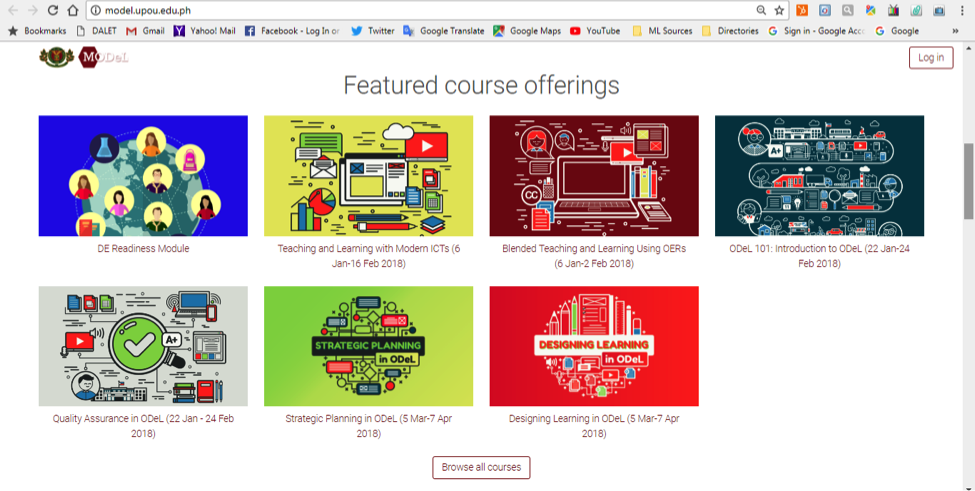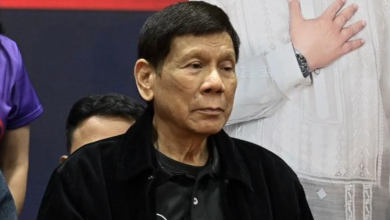Albeit the fact that many users now are into social media, other users want to engage in open learning where they can have access to different open online courses for free.
Massive Open Online Content (MOOC) is a designed tool and an educational material delivered to hundreds and thousands of people who enroll and study online.
It provides free learning in all distances where learners or users are flexible in accessing learning through a self-directed approach but if a certification is desired, payment must be made.
Any person can take a course with no limit of attendance.
According to Philippe Jose Hernandez, Assistant Director of the University of Santo Tomas social media bureau, MOOCs are massive in terms of enrollment, but it follows the mold of online distance learning. At the moment, it offers content and certificates, but until such time that these certificates become recognized as to be of similar importance as other certifications, it cannot be classified under formal.
“It is a welcome addition, of course. For Ivy League universities, offering MOOCs is a way for their experts to reach a wider audience and by the same token, for these people to get a feel of studies in these universities,” Mr. Hernandez added.

Dr. Benjamina Flor, Assistant Professor of the University of the Philippines Open University said that MOOCs are automatic learning management systems and students finish the course at their own pace.
The Massive Open Distance e-Learning (MODeL) is the official MOOC platform of the University of the Philippines – Open University.
In MOOC, each course has modules and some Open Online Content providers include FutureLearn, Coursera, and edX. The UNESCO also used a separate platform.
Mr. Philippe also tried MOOC and saw its beneficial factors.
“I feel excited because I can learn things on any topic, like history, education, science, computer technology, etc. There is even a MOOC on the basics of photography,” he claimed.
“It was nice getting certificates from UNESCO, UPenn, and Harvard. I remember even having the chance to e-mail the professor who was delivering the MOOC directly to clarify some points,” Philippe said.
The mechanics
Coursera is one of the many MOOC providers where it connects the learners into several educational institutions worldwide that offer free online learning.
But in the case that the learner wants a higher degree of learning, taking specialization is highly encouraged but with payment.
All materials in MOOC are made available but other links are provided according to experts; even though these are not degree-granting institutions.

“In MOOC, there are no assignments but the assessment is embedded. Grades are automatic but learners or users can have final assessments for a fee,” Dr. Flor claimed.
Students don’t get credit after completing the course, and even plagiarism is also not a big concern since assessments are done online and any “used” information can be detected.
Advantages and disadvantages
Mr. Philippe said that anyone can overcome geographical limitations with MOOCs because learners don’t have to be there to study. This gives access to learning, sans the degrees and diplomas.
“It’s also relatively cheap to get the certificate, and some sites like edX don’t even require you to pay for the certificate first before giving all the content,” he said.
The MOOC content remains there, so on the part of the teacher, all users’ need is audio-video recordings of teaching, and learners are good to go.
“You don’t need to edit your materials much nor repeat it to different classes,” Philippe added.
However, the assessment in MOOC is scant and shallow, given the number of students who take it and even it lacks feedback.
“Formal education in the Philippines is outcomes-based for the tertiary level, and it has traces of it in the basic education level, where performance tasks are a major requirement,” Mr. Philippe claimed.
“MOOCs cannot assess performance tasks. In my experience, it’s usually objective-type tests, like multiple choices. I will write paragraphs, but instead of the instructor evaluating me, I will evaluate myself,” he added.
The advent of social media and disinformation
Experts believed it is not a pressing necessity in learning nowadays since it provides an alternative opportunity to learn and it joins traditional, face-to-face modes of learning.
“Since participation is voluntary, it is up to the learners to subscribe or not,” he said.
Checking reviews is also important and should be done nowadays since everything goes digital and fake news; misinformation and disinformation about open learning are also possible.
“If you’re connected to academic institutions or know people who are, ask them. Normally, it’s these people who have early access to MOOCs, like how I learned about UNESCO,” Philippe shared.
“Its presence is of no immediate risk or negative consequence, so its presence is harmless. It is helpful for many. Of course, the system has to be improved later on to avoid the spread of false information,” he added.
Future developments
Technological capacity like internet access is necessary, but promotion must come along with it according to experts.
“I think MOOCs will get a boost if schools begin recognizing the certificates from MOOCs, like for their faculties. The same goes for companies,” Philippe added.
“MOOCs can make you learn stuff that you want at your own pace with little pressure of being judged or evaluated against a set of grade standards,” he added.
For those who want to take courses online for free, you can search the “MOOC free online courses” example in Google. Look for credible institutions offering MOOC courses with scheduled programs, and see the process of getting certificates after finishing the course.




